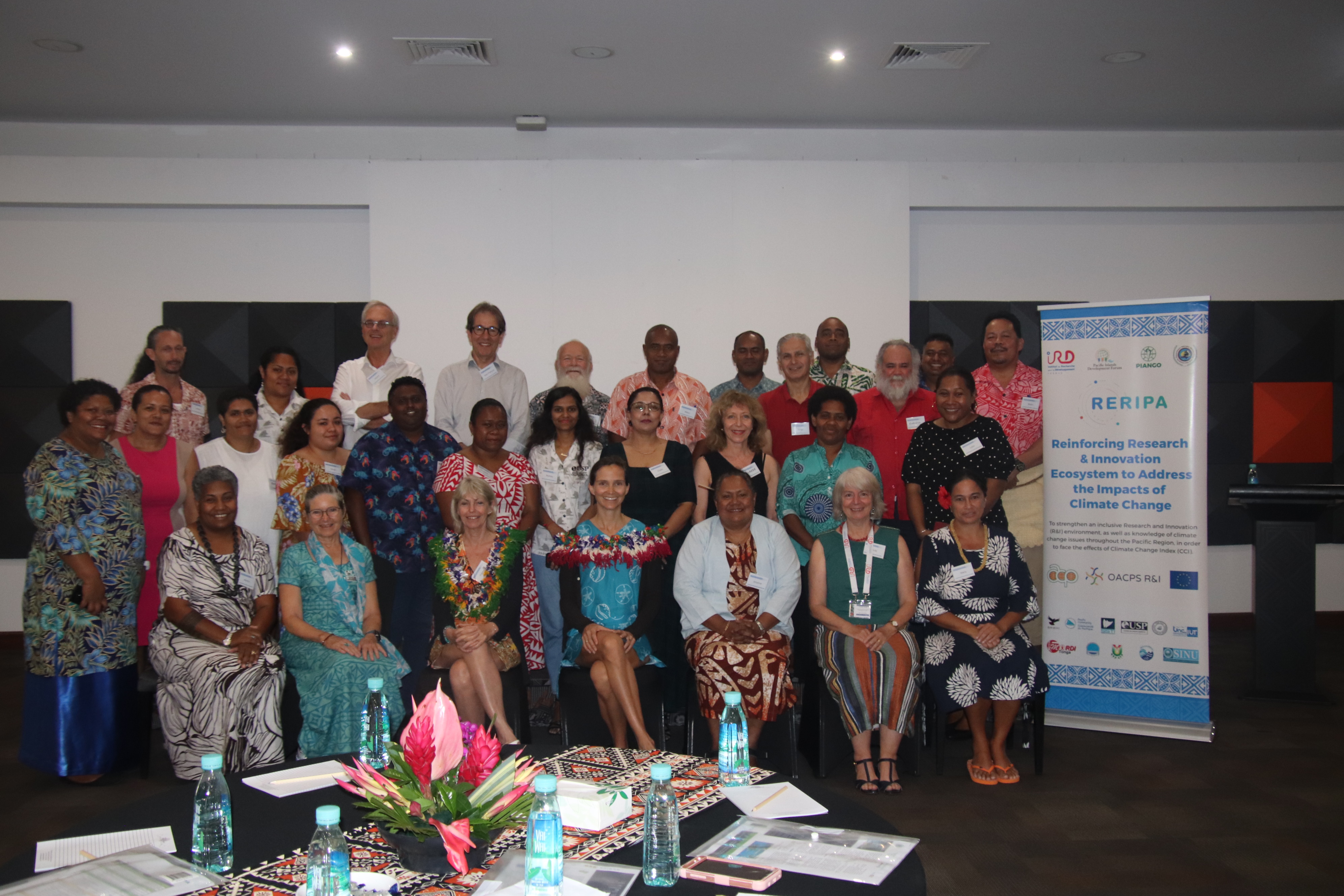Related News

In the heart of the Pacific Small Island Developing States (SIDS), a significant initiative is underway—the RERIPA Project. This project, an acronym for “Strengthening Research and Innovation Ecosystems to Address the Impacts of Climate Change in the Pacific,” is set to make a significant impact in the fight against climate change.
The RERIPA Project, which stands for “Renforcement des écosystèmes de Recherche et d’Innovation face aux enjeux climatiques dans le Pacifique” (Strengthening Research and Innovation Ecosystems to Address the Impacts of Climate Change in the Pacific) in Small Island Developing States (SIDS), is an initiative supported by the African, Caribbean, and Pacific (ACP) Innovation Fund, a part of the Research and Innovation (R&I) program of the Organisation of ACP States (OACPS) with financial backing from the European Union.
This program has been established with the aim of enhancing the Research and Innovation (R&I) capacities of the ACP countries, thereby contributing to their sustainable development. Through the RERIPA project, this initiative aims to foster innovations that can more effectively address the challenging impacts of Climate Change Initiative (CCI).
Through the project, the University of the South Pacific has been awarded Calls 1 and which are led by Professor Maurizio Cirrincione and Professor Elisabeth Holland. Dr. Cecile Dupouy, who was based at PaCE-SD from 2019-2023, serves as overall RERIPA coordinator. Professor Jean Francois Marini serves as RERIPA project advisor. Call 1 involves a consortium of partners, including the Pacific Islands Universities Research Network (PIURN), the Secretariat of the Pacific Community (SPC), National University of Vanuatu (NUV), Solomon Islands National University (SINU), Engineering Fiji (EF)University of New Caledonia, and Pacific Ocean Pathways in Support of Sustainable Development an Integrated Approach (PACPATH). Call 2 consortium of partners include the National University of Samoa (NUS), Sustainable Sea Transport Initiative (SSTI), and Mainstreaming of Rural Development Innovation Tonga Trust (MORDI). External partners for Call 2 are the University of New Caledonia (UNC), and Blue Mountains World Heritage Institute.
The Pacific Islands Forum held in the Cook Islands in November, 2023 launched the implementation plan for the 2050 Strategy for the Blue Pacific Continent at the Pacific Islands Forum in the Cook Islands and reaffirmed their collective commitment to the strategy that places climate change and the Ocean at the forefront of the Pacific agenda: ‘Leaders emphasised that securing legal certainty of the Blue Pacific, in the face of the existential threat of climate change, is at the heart of the 2050 Strategy and underpins the security and full realisation of the Blue Pacific Continent, now and in perpetuity. It is fundamental to securing the rights, entitlements, and interests of all states and peoples of the Blue Pacific, and to the maintenance of global peace and security.’
The aim of the RERIPA project is to promote an inclusive Research and Innovation (R&I) environment and to cultivate knowledge aimed at addressing the impacts of climate change in the Pacific Region. What truly sets the RERIPA project apart is its approach, which fosters collaborative design and implementation of climate change solutions by involving academic institutions, businesses, non-governmental organizations, user representatives, and public authorities.
The project convened a series of technical workshops on the 23rd and 24th of October at the Statham Campus, USP, followed by an event on the 25th and 26th of October at the Pearl Resort. The primary focus of these gatherings was to address the pressing regional challenges posed by climate change.
To address regional climate change challenges, the RERIPA project has three interconnected goals. The Specific Objective (SO1) encourages collaboration among various stakeholders in order to develop tailored Research and Innovation (R&I) strategies. Through research, project engineering, and collective intelligence, SO2 improves regional R&I capacity. While SO3 creates living labs for innovative, inclusive, and long-term solutions to climate change impacts. Collaboration is essential, and the project will collaborate closely with stakeholders to co-create actions and offer funding opportunities through four calls, fostering shared responsibility for climate resilience and innovation in the region.